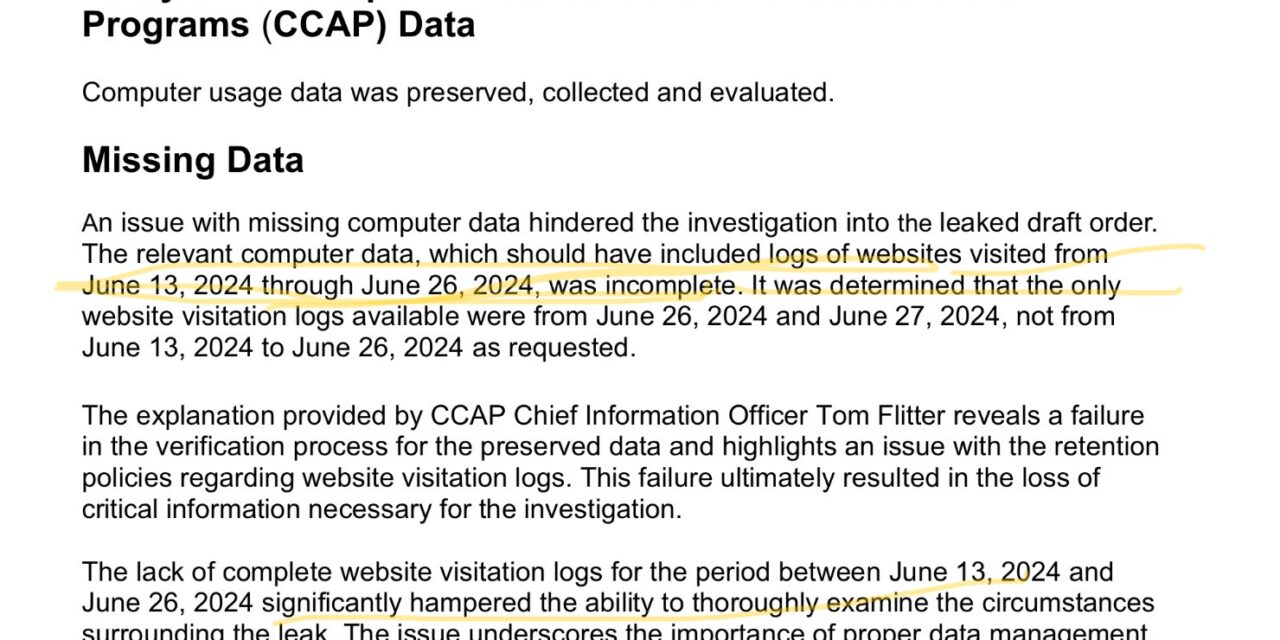
An investigation into the unauthorized disclosure of a Wisconsin Supreme Court draft order concerning abortion access was significantly hindered by missing digital records, according to a report, dated last week but released on April 30th.
The absence of website visitation logs from June 13 to June 25, 2024 left investigators with only data from June 26 and 27, impeding efforts to identify the source of the leak.
This failure ultimately resulted in the loss of critical information necessary for the investigation. The lack of complete website visitation logs for the period between June 13, 2024 and
Page 13 of the Highly-Redacted report
June 26, 2024 significantly hampered the ability to thoroughly examine the circumstances
surrounding the leak
Redactions and Lack of Accountability
The report did not identify who was responsible for the missing digital records. Names and email addresses were redacted throughout the report, and no individual was definitively identified as responsible for the leak. The report concluded that the leak was “likely deliberate,” but investigators were unable to determine its source.
Legal and Ethical Framework
Under Wisconsin law, the intentional destruction, damage, removal, or concealment of any public record with intent to injure or defraud constitutes a Class H felony.
The Wisconsin Code of Judicial Conduct obligates judges to uphold the integrity and independence of the judiciary and to avoid impropriety and its appearance in all activities. While the Code does not explicitly address digital record management, it emphasizes that judges must respect and comply with the law and act in a manner that promotes public confidence in the judiciary’s integrity and impartiality.
The absence of critical digital records in this high-profile investigation not only hindered the identification of the leak’s source but also raises concerns about compliance with legal standards for public record preservation and the ethical obligations of judicial conduct.
While the justices “unanimously condemned” the leak and called it a “serious breach of trust,” the investigation concluded without naming a suspect. The court announced it will create a task force to review the report’s recommendations and strengthen internal security procedures.
7:07 pm April 30, 2025












